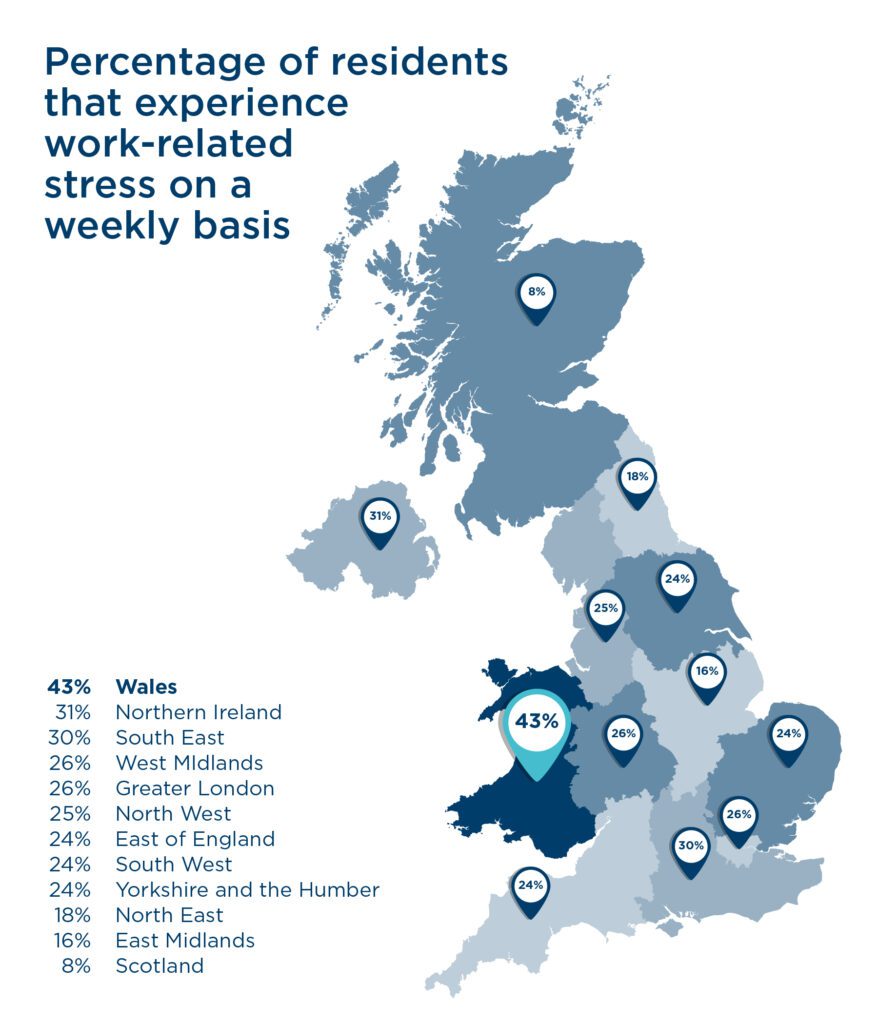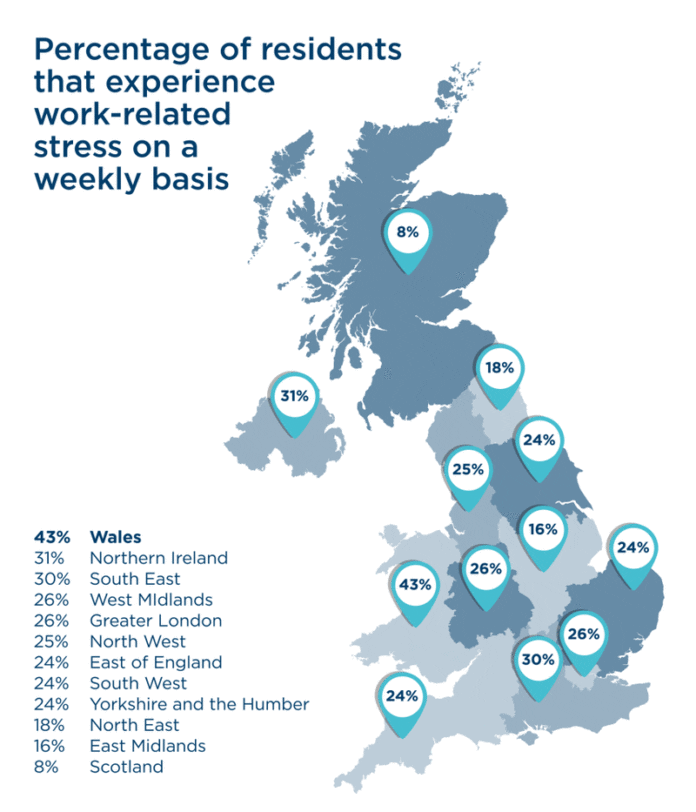- Wales leads as the most stressed UK region with 48% of residents experiencing work-related stress on a weekly basis
- Latest government advice could contribute to an even bluer Monday
- Work-related stress set to be compounded by new Covid guidelines and the post-Christmas blues

Whilst the post-Christmas period can leave many individuals feeling deflated, these January blues will only be compounded further as the uncertainty surrounding Covid continues to loom, and cases related to the new Omicron variant are on the rise.
With the Government now advising people to work from home where possible, this uncertainty will unfortunately be converted into work-related stress for a lot of people, especially if the new guidelines make it increasingly difficult for them to remain productive upon their return to work.
Even without these external pressures, work-related stress continues to cause serious problems for businesses, with the number of working days lost to stress, anxiety and depression growing steadily since 2017 to 54%.
According to statistics from the most recent UK workplace stress study, a staggering 79% of employed British adults experience workplace stress – 20% higher than two years earlier. The same survey also showed that Wales was the most stressed region, with 48% of people experiencing work-related stress on a weekly basis.
Tina Chander, Head of the Employment Law Team at Wright Hassall, commented: “These statistics will be eye-opening for many employers in Wales, serving as a serious reminder of just how widespread and debilitating work-related stress is, especially at this time of year with dates like Blue Monday just around the corner.
“Unfortunately for businesses, the emergence of the Omicron variant has led to a spike in the number of new cases, which has forced the Government to issue new guidance, including work from home measures, in order to slow the spread of the virus.
“Although many employees will have experienced such measures during the previous lockdowns, that doesn’t necessarily mean the impact will be any less disruptive this time round, especially if remote working interferes with an employee’s ability to communicate and collaborate with fellow colleagues.
“Instead, what you have is a recipe for increased work-related stress, which is obviously unhealthy when you consider that 79% of British adults are already experiencing stress in the workplace.
“Therefore it is absolutely vital that employers do what they can to mitigate the risks associated with work-related stress, taking the time to understand the legal aspects surrounding the issue, whilst implementing procedures that will protect the interests of their workers.”

| [donate]
| Help keep news FREE for our readersSupporting your local community newspaper/online news outlet is crucial now more than ever. If you believe in independent journalism,then consider making a valuable contribution by making a one-time or monthly donation. We operate in rural areas where providing unbiased news can be challenging. |

















